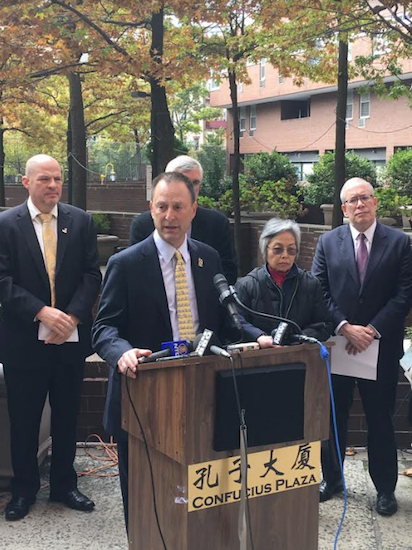Advocates urge 9/11 victims to apply for Zadroga help
Health care program is open to students, residents, workers

The James Zadroga 9/11 Health and Compensation Act isn’t just for first responders, according to advocates and elected officials, who are mounting an all-out effort to spread the word that the federally funded program is also available for people who went to school, worked or lived in Lower Manhattan and Brooklyn Heights on Sept. 11, 2001 and in the months that followed.
Brooklyn Heights is considered part of the coverage area, officials said.
The public awareness campaign, which began two months ago, is stepping up in an attempt to convince those who might have been exposed to the toxins from the World Trade Center site to come forward.

Brooklyn Heights
View MoreRead the Brooklyn Height's Press and Cobble Hill News. Find out more about Brooklyn Height's History here.